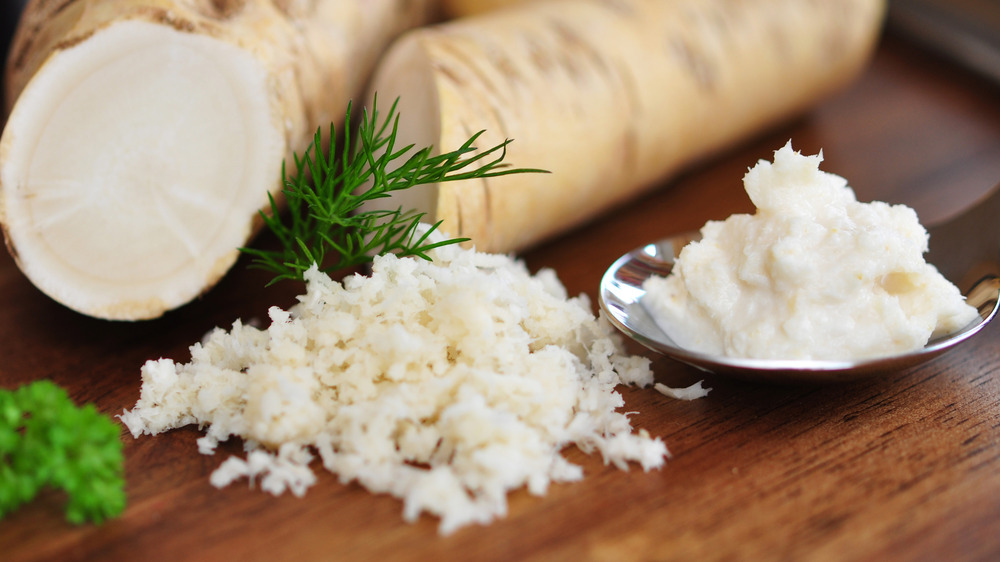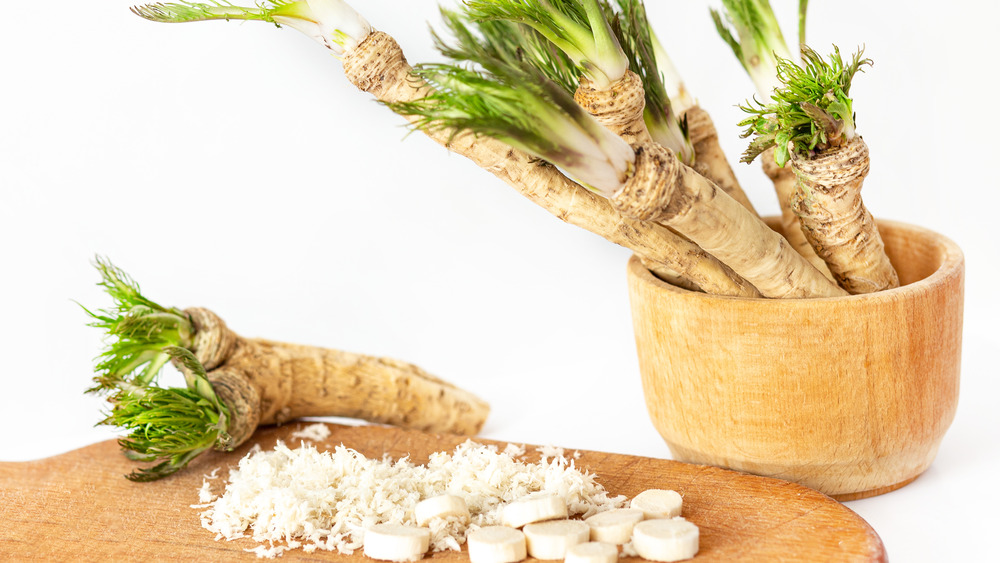This Is Where The Spiciness Of Horseradish Comes From
Pungent, sharp, and polarizing, horseradish is a staple addition to everything from cocktail sauces to Bloody Marys to prime rib. Its intense, nasal-clearing aroma and flavor add a veritable jolt to anything it is added to. For the unacquainted, it's similar to wasabi (and comes from the same family), but as The Takeout notes, the heat from wasabi tends to dissipate soon after eating, whereas the heat of horseradish can definitely linger.
The Spruce Eats notes that horseradish is "native to Russia and Hungary." Interestingly enough, Taste Of Home states that "horseradish is unique in the spice world because it isn't spicy until you cut into it" — but once you do, beware! It really packs a wallop. The Takeout relates that the intense spiciness of horseradish is "because of a frailly of compounds called isothiocyanates," which are also present in other foods in the Brassicaceae family, such as mustards, broccoli, cabbage, and so on. An enzyme called myrosinase, or glucosinolates, is released when the horseradish plant itself is cut, sliced, or grated.
How is it served?
The ingredient should definitely be used sparingly, especially for anyone sensitive to heat — a little goes a long way, and there is a fine line between a welcome kick of heat and the unpleasant burning sensation that can otherwise suddenly affect your throat, eyes, and nose. Horseradish is also sometimes combined with sour cream or mayonnaise, which helps to dilute its intense flavor, and is often sold as "prepared horseradish," which helps to mellow the heat out a bit when the grated horseradish is combined with salt, vinegar, sugar, and/or baking soda.
In addition, Healthline notes that horseradish can also be used for medicinal reasons, offering anti-bacterial and anti-cancer benefits. It also has calcium, potassium, magnesium, and folate, and some believe it protects against cancer, infections, and brain diseases. It's also beneficial for respiratory health. It's often sold as a dried supplement, which is generally more palatable for medicinal purposes than consuming incredibly sharp raw horseradish.
If you're a fan of spicy foods — horseradish should be your go-to!

